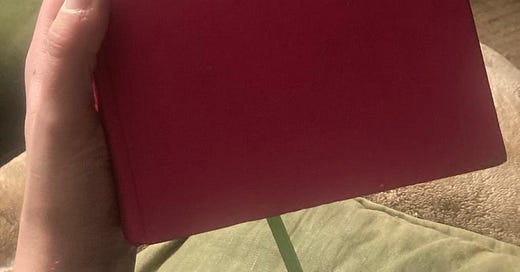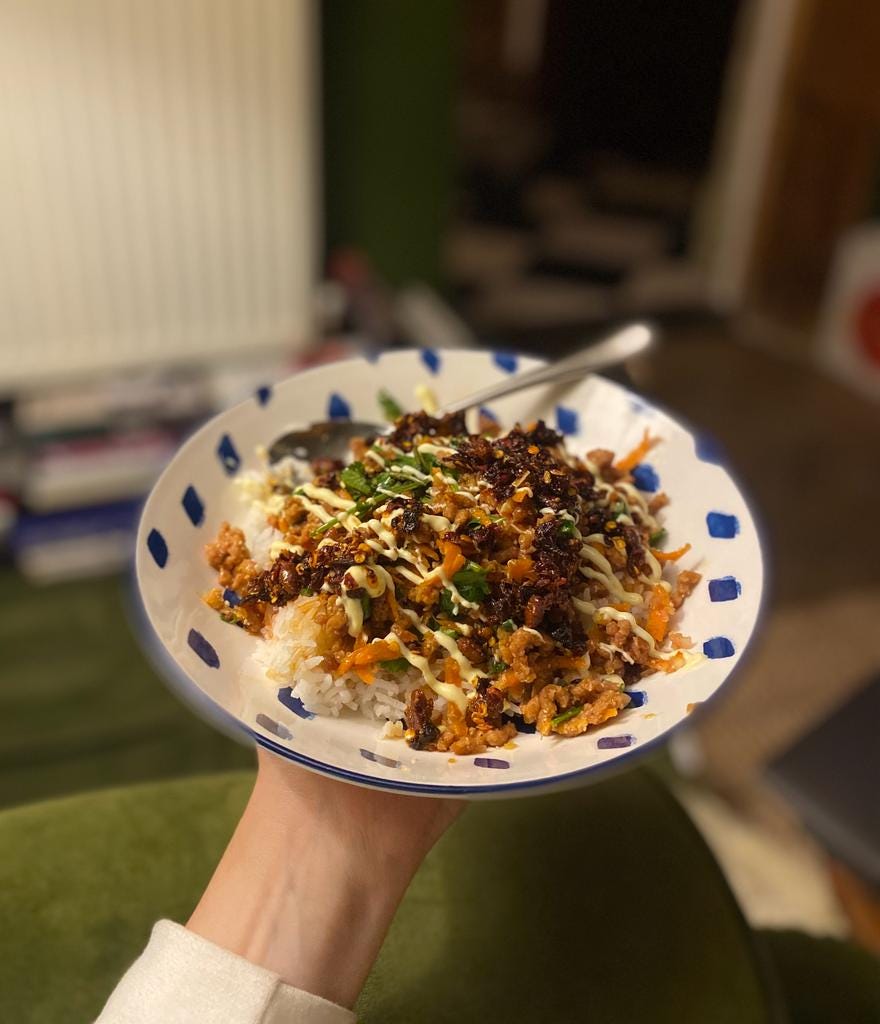There is a not-too-distant parallel universe where I’m in Thailand right now.
Several of my family members are currently travelling around south-east Asia, and though I was invited to join the adventures, in the end logistics and costs conspired against my own trip. Which means I’m not currently eating som tam and kao phad on a beach, toes being kissed by the Andaman Sea: I’m nesting in the warm embrace of home in the east of England. This is no bad thing, of course, but – January, you know. And it was with this slightly bitter sweet (and sour and salty) information in the back of my mind that I picked David Thompson’s detailed masterwork Thai Food to kick off my year of eating from a different cookbook each week of 2023.
Thompson’s epic tome is not for those who merely dabble. It requires commitment. It offers a richly detailed gastronomic and socio-cultural history of Thailand, and that’s before the exhaustive section on ingredients, methods and techniques. Recipes don’t feature until well into the second third of the book. Ingredients lists are exhaustive, methodologies precise and complex. Someone suggested to me on Instagram that we’d need at least two days for any recipe we chose: one for cooking, but one in advance just to track down the ingredients. This was only partly in jest. Shop-bought curry pastes were not an option.
In my Hole in the Wall days I used to crave Thai food more than anything else, particularly on a Sunday evening when my working week ended with cooking around a hundred portions of roast lunch - and while I still adore the slap and bang assault of acidity, sweetness and heat, the coldest, darkest days of the year called for something slightly more warming.
Mussaman isn’t merely a curry, it’s a project: ‘the most complex and time-consuming Thai curry to make,’ explains Thompson (Thai Food, p. 329). Apparently that’s not quite enough warning, so he goes on to explain that the included version of the recipe, taken from Jip Bunnark, is even ‘more complicated than the historic recipe that has been suggested as the original mussaman’.
The ingredients list wasn’t quite as daunting as the preamble led me to believe. Far more surprising, though, was the roundabout nature of the technique - one where the curry paste is cooked entirely separately and incorporated into the dish only at the very end, which was a method I’ve never come across before. Rather than the simple one-pan technique I was used to (fry off spices and/or curry paste, add protein or vegetables, add liquid and cook until ready), Thompson’s mussaman is a multi-pan wonder. Roast spices. Cook aromatic ingredient. Crack coconut cream (cook until the fat splits out of the cream). Make paste. Cook paste (slowly and for a long time, stirring regularly to ensure it doesn’t catch or burn or dry out too much). Fry chicken, fry onions, fry potatoes, then simmer all three in coconut milk.
Only once the paste has cooked into a dark, caramel coloured aromatic wonder does it get seasoned with fish sauce and tamarind, and only when the chicken and potatoes are fully tender do the two meet for the first time in joyous harmony. A complex delight, ideal for an early January night when Thailand was in our dreams as well as our bellies.
Later in the week I used the leftover ginger, lemongrass, chillies and shallots to make a larp, using a plant-based mince substitute rather than chicken or pork. A larp is a great dish to learn the key basics of Thai cooking and that crucial balance of sweetness, acidity, heat and salinity, on which Thompson writes a lengthy and useful treatise in the chapter introduction on Thai salads. Despite its lightness, a larp is a quickly-assembled salad of robust proportions, yet is satisfying in a way that only a dish that takes a four-pronged assault can be, with the acidity of lime juice ensuring every mouthful is equally fresh and filling. It’ll definitely be in regular rotation for those nights where I’m not sure what to cook – and as for the mussaman, thankfully the quantities we made were significant enough for several portions to end up in the freezer so I won’t have to make it from scratch again any time soon.
***
2023 also sees David Thompson return to the UK dining scene for the first time since 2012: Long Chim - of which there are already outposts in Sydney, Perth and Dubai – is scheduled to open in London at some point this year and is sure to be worth the wait. I might even order the mussaman, particularly as someone else will be doing the washing up.






I love that this project has brought you to the Substack regularly. This is great!
Nahm is one of the restaurants I really miss. The little amuse bouche were legendary - and the recipe is in the book (which is both daunting and amazing and lovely)! Your post was a little trip down memory lane, I’ll have to dig the book out :) Thanks!